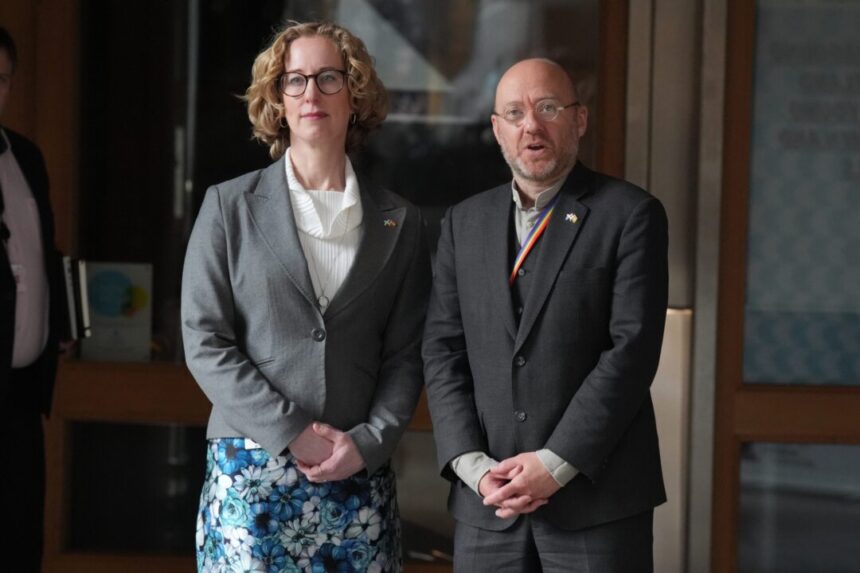The Greens accused Humza Yousaf of ‘cowardice,’ but the first minister ruled out an early election as he faces a vote of no confidence. The SNP is now operating as a minority government in Scotland after Yousaf ended the power-sharing arrangement with the Green Party following recent policy disagreements around net zero and gender ideology. An emergency meeting of the Scottish Cabinet agreed to end the arrangement known as the Bute House Agreement, which brought the Greens into power when the SNP fell short of a majority by one seat in 2021. The move means the Green Party’s co-leaders, Lorna Slater and Patrick Harvie, are no longer part of the Scottish Government. The government had committed to reducing carbon emissions by 75 percent by 2030, but the target was scrapped last week. Many SNP members were wary of the government’s support for transgender ideology, with the Greens pushing for a Gender Recognition Reform Bill that was vetoed by the UK government. The Greens had planned to discuss the future of the Bute House Agreement, but the SNP ended the deal first. During a press conference, Yousaf stated that the arrangement was no longer stable, leading to its termination. The Greens criticized the SNP for ending the agreement, accusing them of political cowardice and betrayal. The collapse of the coalition was seen as an embarrassment for Yousaf, with other parties criticizing the government’s incompetence and chaos. Scottish Conservative leader Douglas Ross announced a vote of no confidence in Yousaf, calling him a ‘lame duck leader.’
Yousaf is facing increasing pressure to either resign or call for an election.
Out of the 129 MSPs, 63 are from the SNP, 31 are Conservatives, 22 are Labour, seven are Greens, and six belong to other parties such as the Liberal Democrats and Scottish Alba Party.
This report includes contributions from PA Media.





